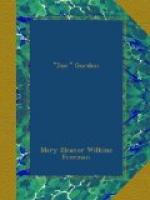“Those people seem positively elated because that old soul is sick,” said James when he and the doctor were again in the buggy.
“They are,” said Doctor Gordon, “even the old woman herself, who knows well enough that she has not long to live. Did you ever think that the desire of distinction was one of the most, perhaps the most, intense purely spiritual emotion of the human soul? Look at the way these people live here, grubbing away at the soil like ants. The most of them have in their lives just three ways of attracting notice, the momentary consideration of their kind: birth, marriage, sickness and death. With the first they are hardly actively concerned, even with the second many have nothing to do. There are more women than men as usual, and although the women want to marry, all the men do not. There remains only sickness and death for a stand-by, so to speak. If one of them is really sick and dies, the people are aroused to take notice. The sick person and the corpse have a certain state and dignity which they have never attained before. Why, bless you, man, I have one patient, a middle-aged woman, who has been laid up for years with rheumatism, and she is fairly vainglorious, and so is her mother. She brags of her invalid daughter. If she had been merely an old maid on her hands, she would have been ashamed of her, and the woman herself would have been sour and discontented. But she has fairly married rheumatism. It has been to her as a husband and children. I tell you, young man, one has to have his little footstool of elevation among his fellows, even if it is a mighty queer one, or he loses his self-respect, and self-respect is the best jewel we have.”




